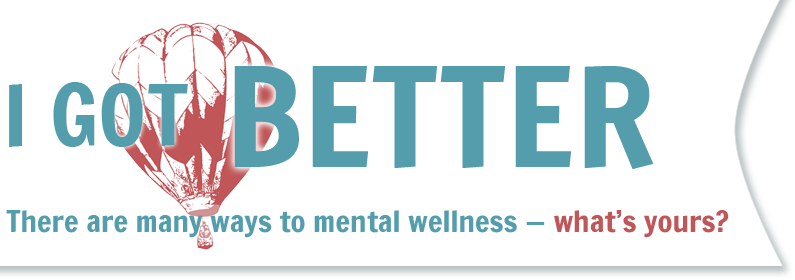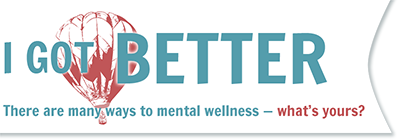Recognizing the Society
Tania Jivraj
During your mental health care, have you often felt hopeful about your chance of getting better?
My social worker who supported me through my post-partum was the first person to say to me that my PPD (Postpartum Depression) was my body trying to tell me something. She taught me how to listen to my body. She explained historical legacies of women being raised as ‘natural caregivers’ and that societal belief that this was not work that deserves support (financial, societal, day cares etc.), was like a generational trauma. Putting my biology within the framework of an oppressive social environment was amazing! It’s like it wasn’t my fault, my failing, [or] my weakness. My hope was that my PPD was a ‘normal’ reaction to difficult life circumstances. Now I worry about terms like “getting better” because I worry that getting better means better able to manage unfair life situations. I would rather make life more fair than learn how to survive oppression. Recovery and getting over it and surviving are unjust terms in my mind because they still focus on the individual without recognizing the society within which our biology is contextualized.
During your mental health care, have you often felt hopeless about your chance of getting better?
When Children’s Aid got involved. Basically, I felt I had to perform “normally” in order for the worker to not punish me. I was really scared I wouldn’t act normal enough.
Has a mental health provider ever told you that you could reach a personal goal despite your psychiatric diagnosis (for example, education, career, independent housing, relationship, children, etc.)?
I was actually told when I started social work school, by many of my professors, that my experience of the mental health system and traumatic history was important. That my experience is a source of knowledge that can benefit others.
If you overcame hopelessness that you could get better from a mental health or emotional problem, was there a turning point for you?
Somebody being nice to me. I also have a daughter. She loves me very much. I feel like I’m not allowed to try and kill myself anymore because she would be really sad. Now that I know that it’s not an option, it’s like I forget to think about suicide.
Tell us what recovery means to you. How would you define recovery from mental health or emotional problems in your own words?
Mostly, I wish that I could say that I feel unwell and take a day off work without everyone thinking I’m scamming work or I’m being a slacker or I’m weak. I wish that when I got angry, my mom wouldn’t say to me,”Maybe you should increase your medication?” I wish that as a woman, that people saw my anger not as hormonal only, but as a symptom of society’s disease of invalidating me as a woman and dismissing me because i’m “crazy”. My recovery is not about me as an individual, but about recovering with a society that is hell bent on segregating me! I love that my activism has given me the tools to find the words to say this. I used to think I was worthless, now I don’t. I actually think that a lot of people benefit financially from diagnosing others and from helping people ‘recover’, without working on diagnosing those who have a pathological desire to diagnose, or without looking to helping society recover from their discriminating attitudes.
If you could send a brief message to someone receiving mental health care today who is feeling hopeless about getting better, what would you say?
Do some activism. It taps into all that anger but makes it go out instead of having all that anger being self-directed.

